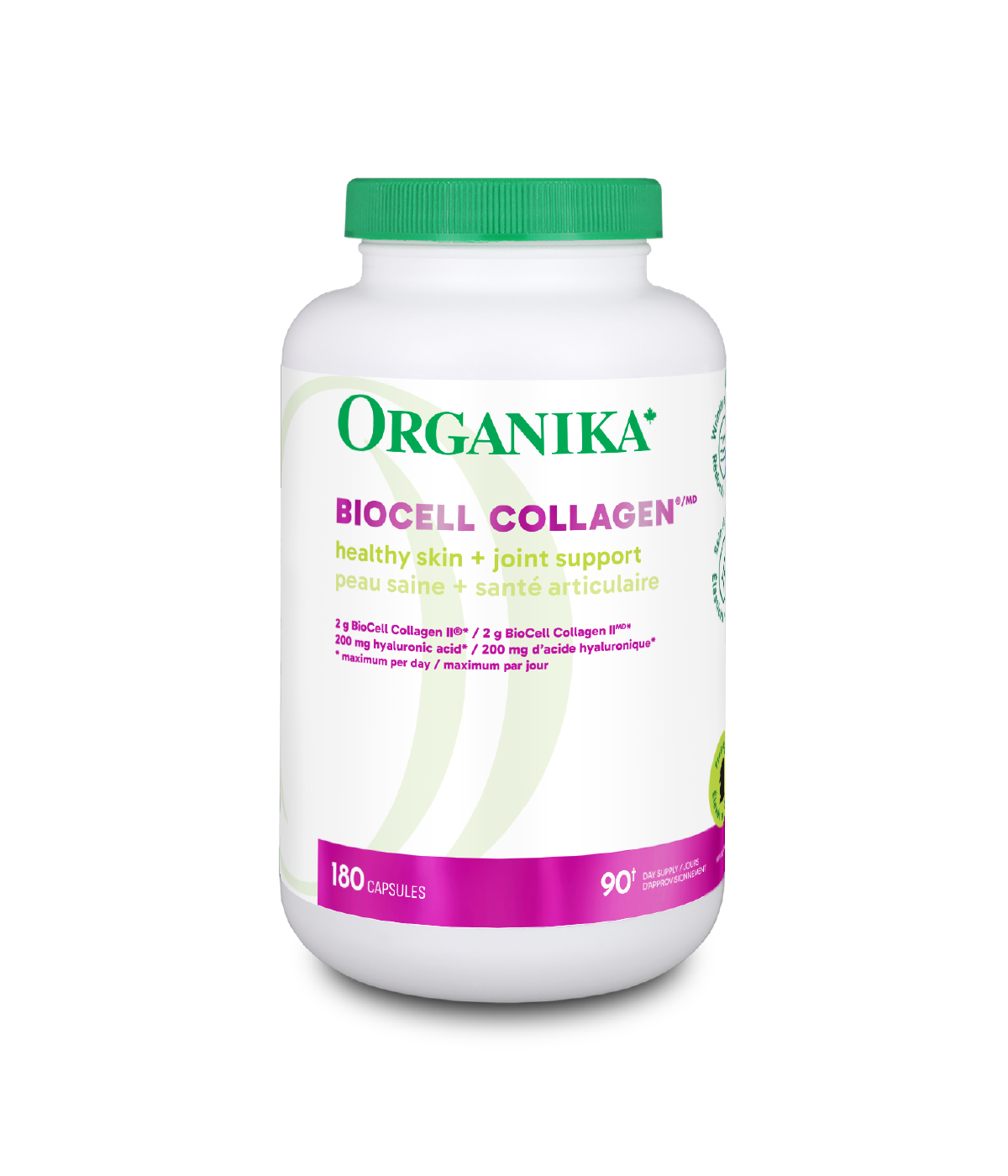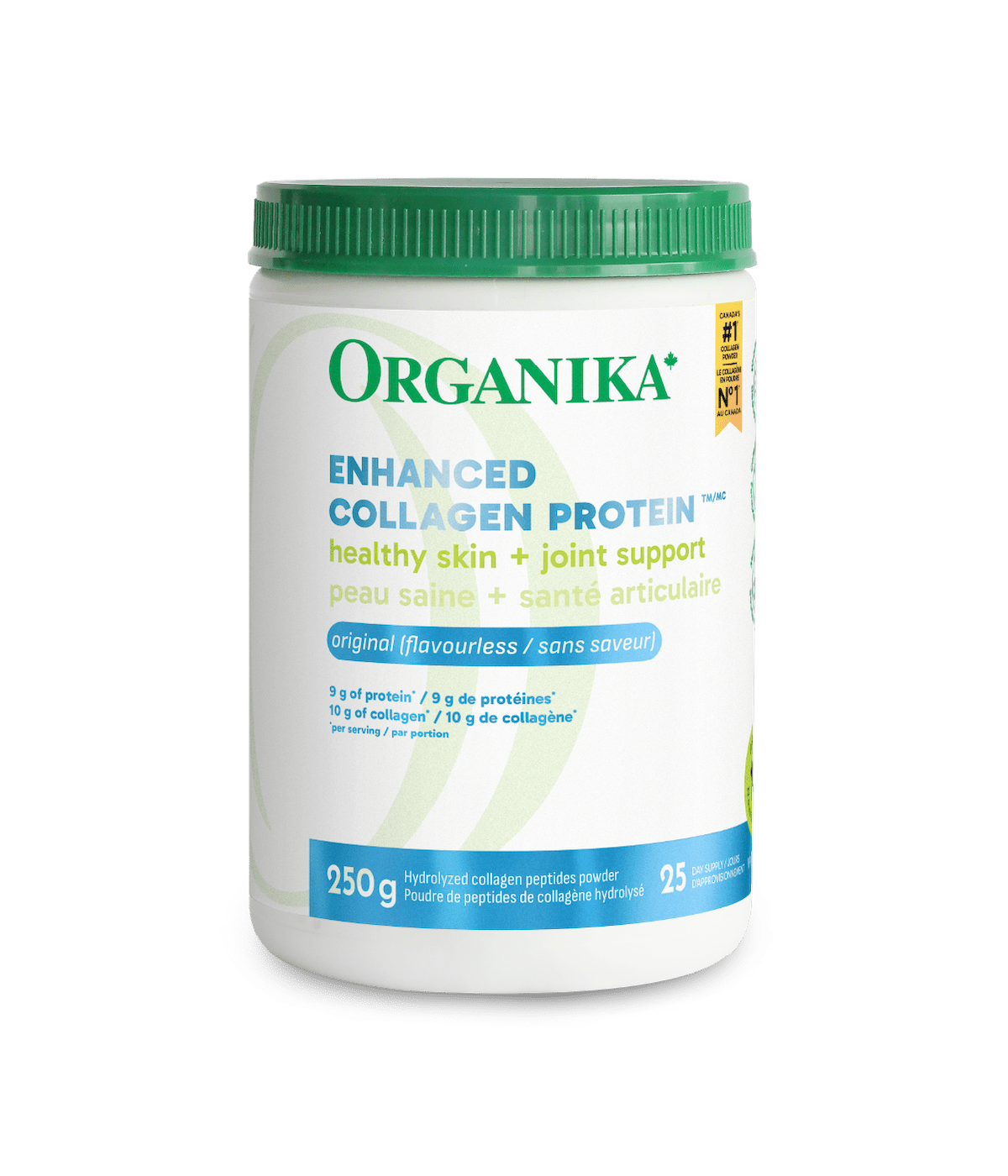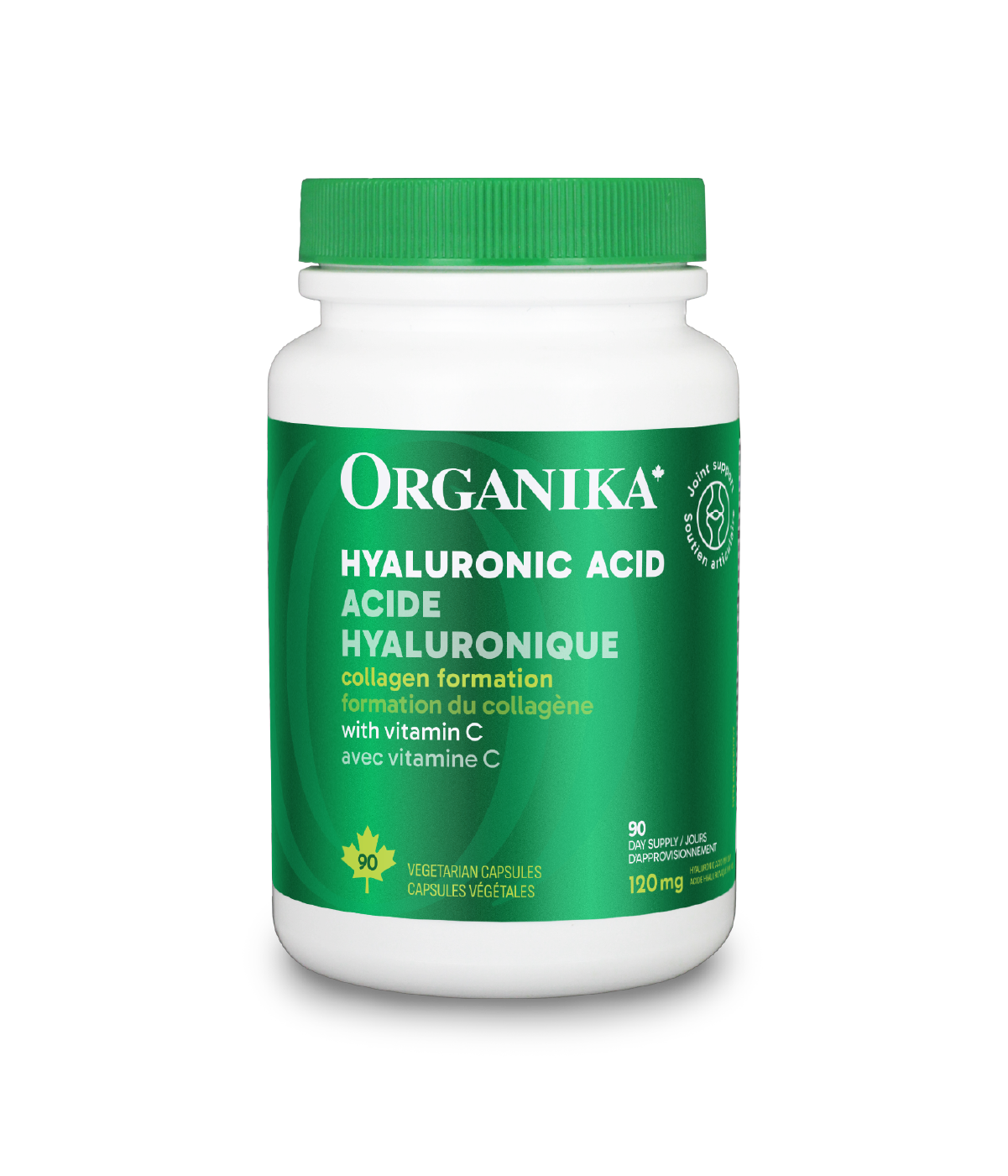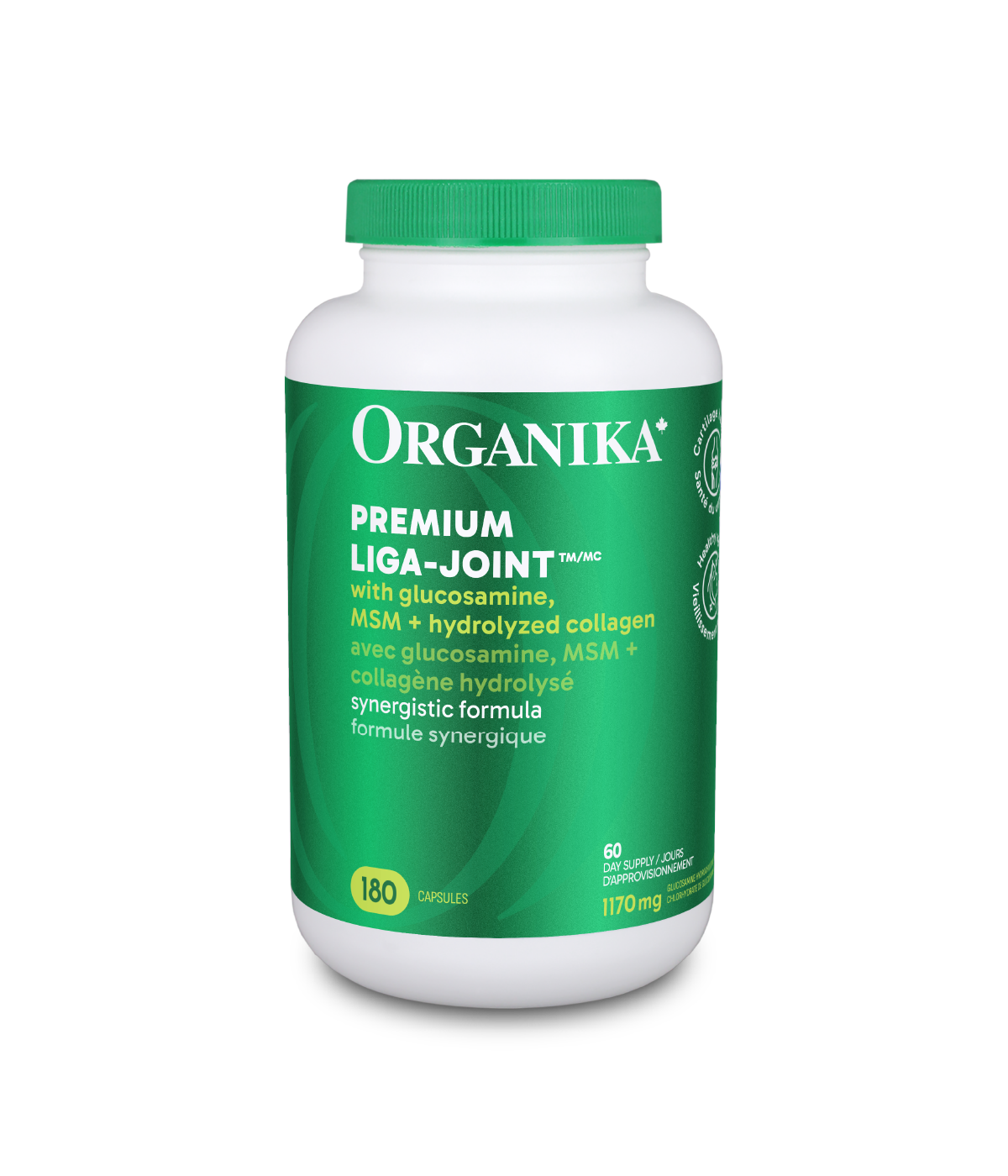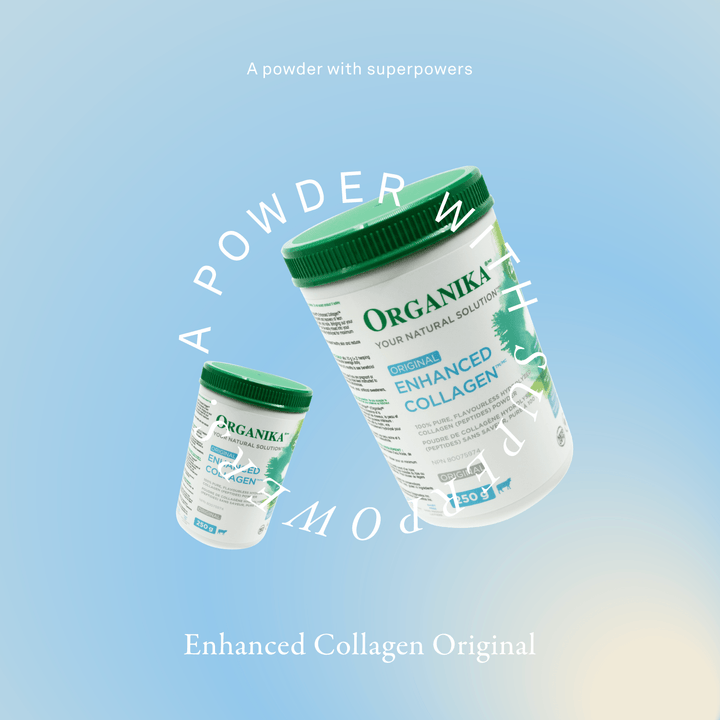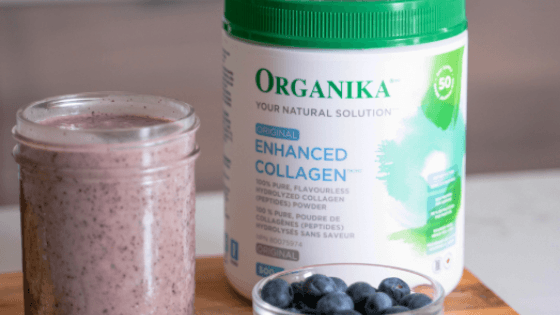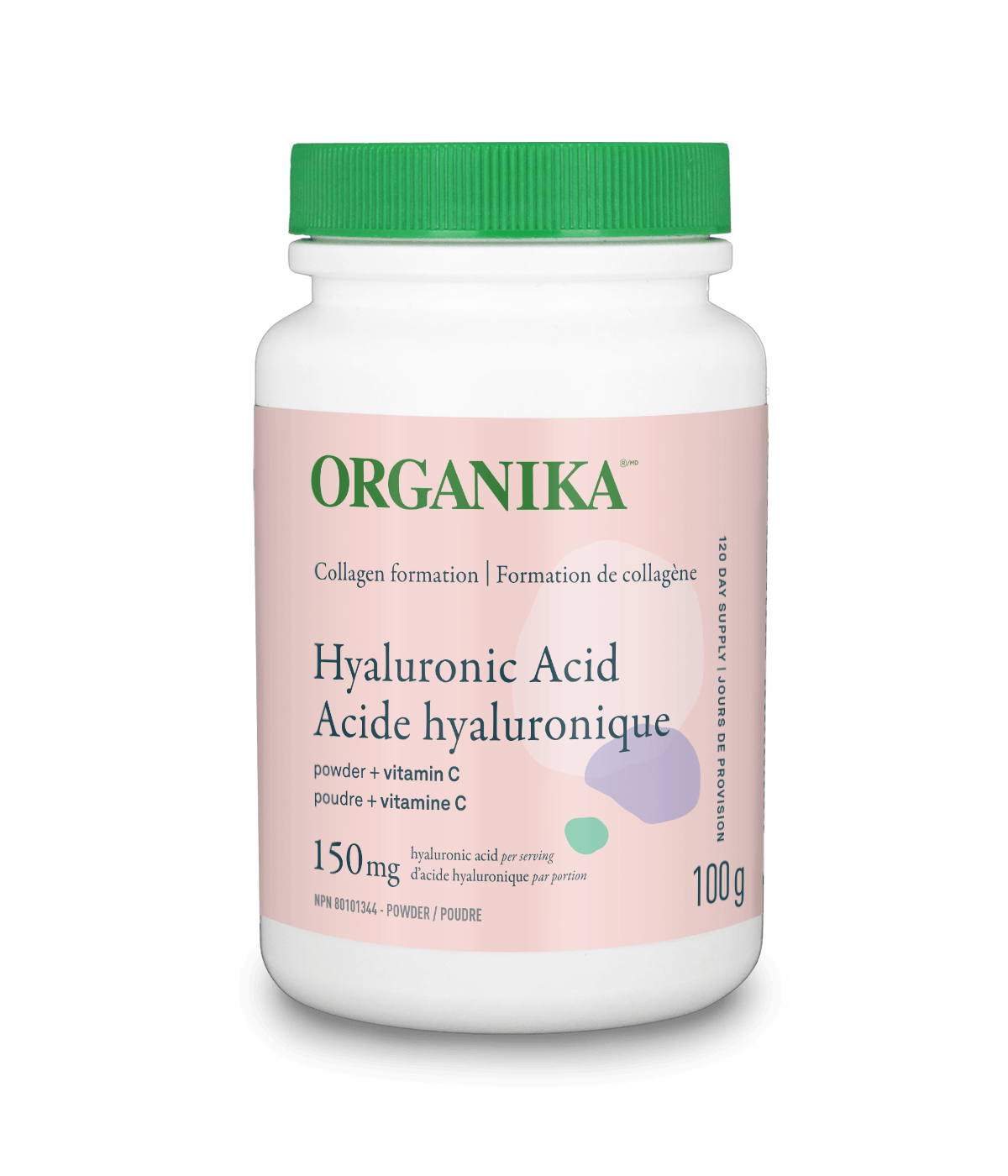
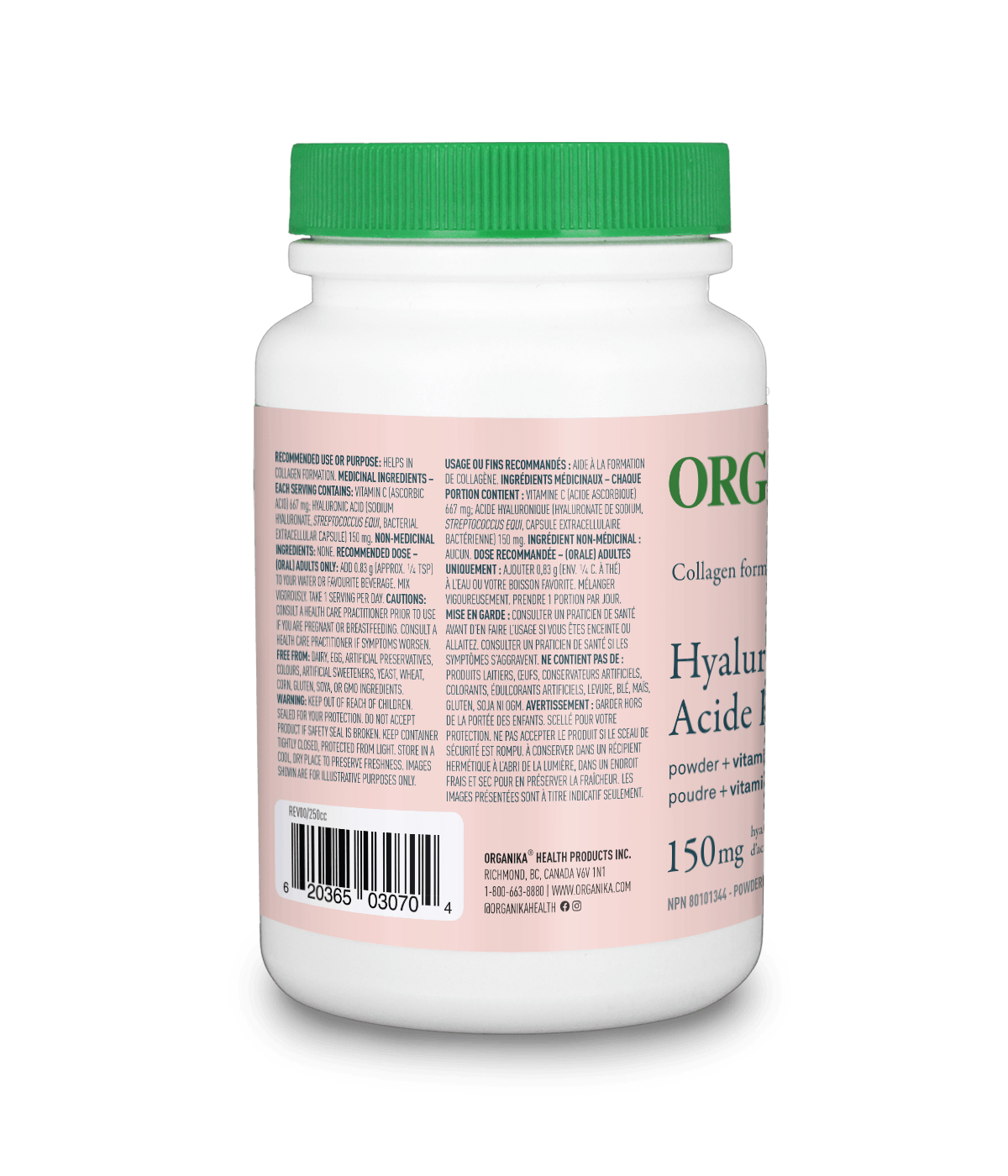




-
Is this right for you?

-


-


-

Hyaluronic Acid Powder
Increases hydration in connective tissues throughout the body
- Supports skin hydration to improve texture and reduce wrinkles
- Helps maintain joint lubrication and flexibility
- Combines hyaluronic acid with vitamin C for enhanced skin and tissue support
- Powder form to mix as you like
Impossible de charger la disponibilité du service de retrait



Notify Me When Available
Enter your email and we'll let you know as soon as this product is back
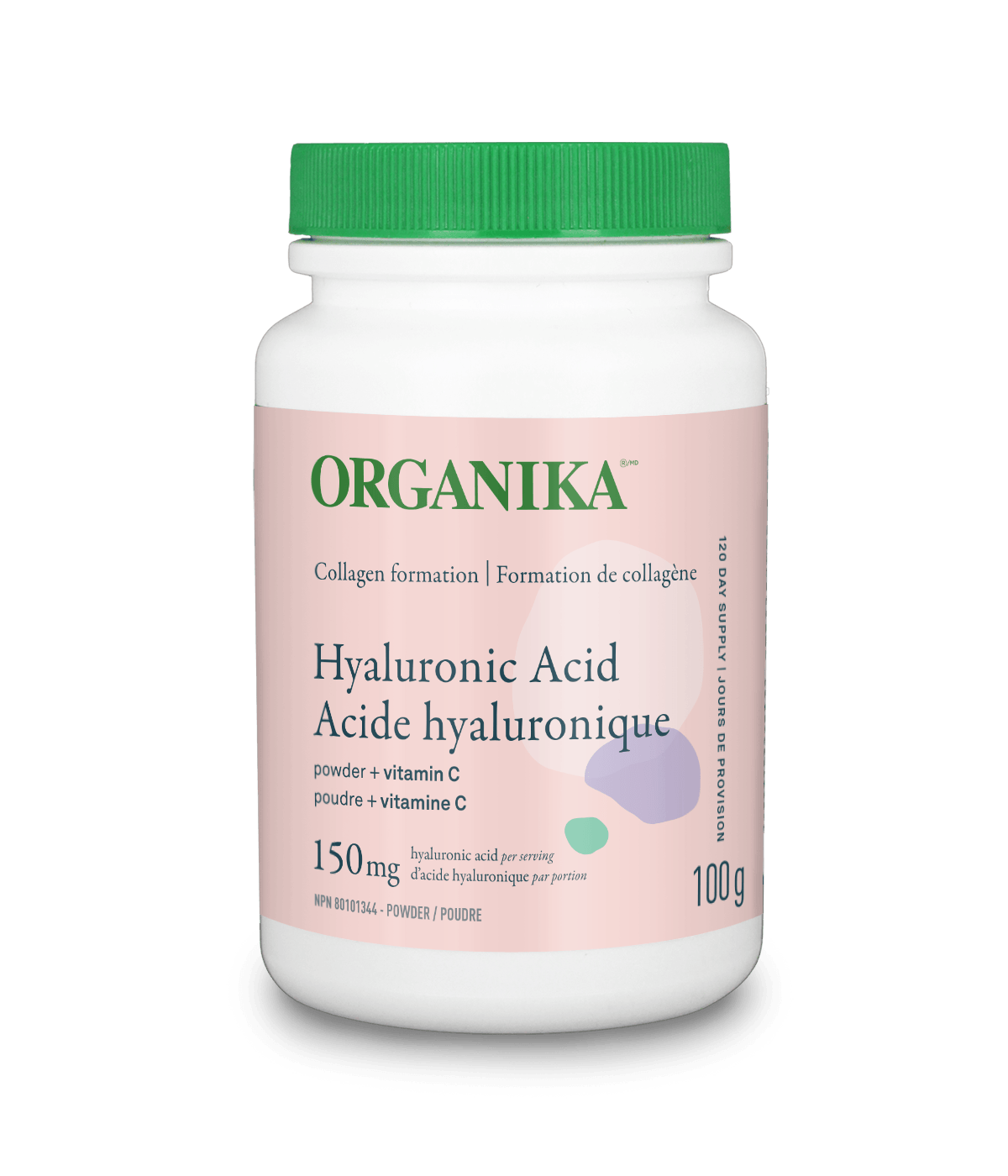
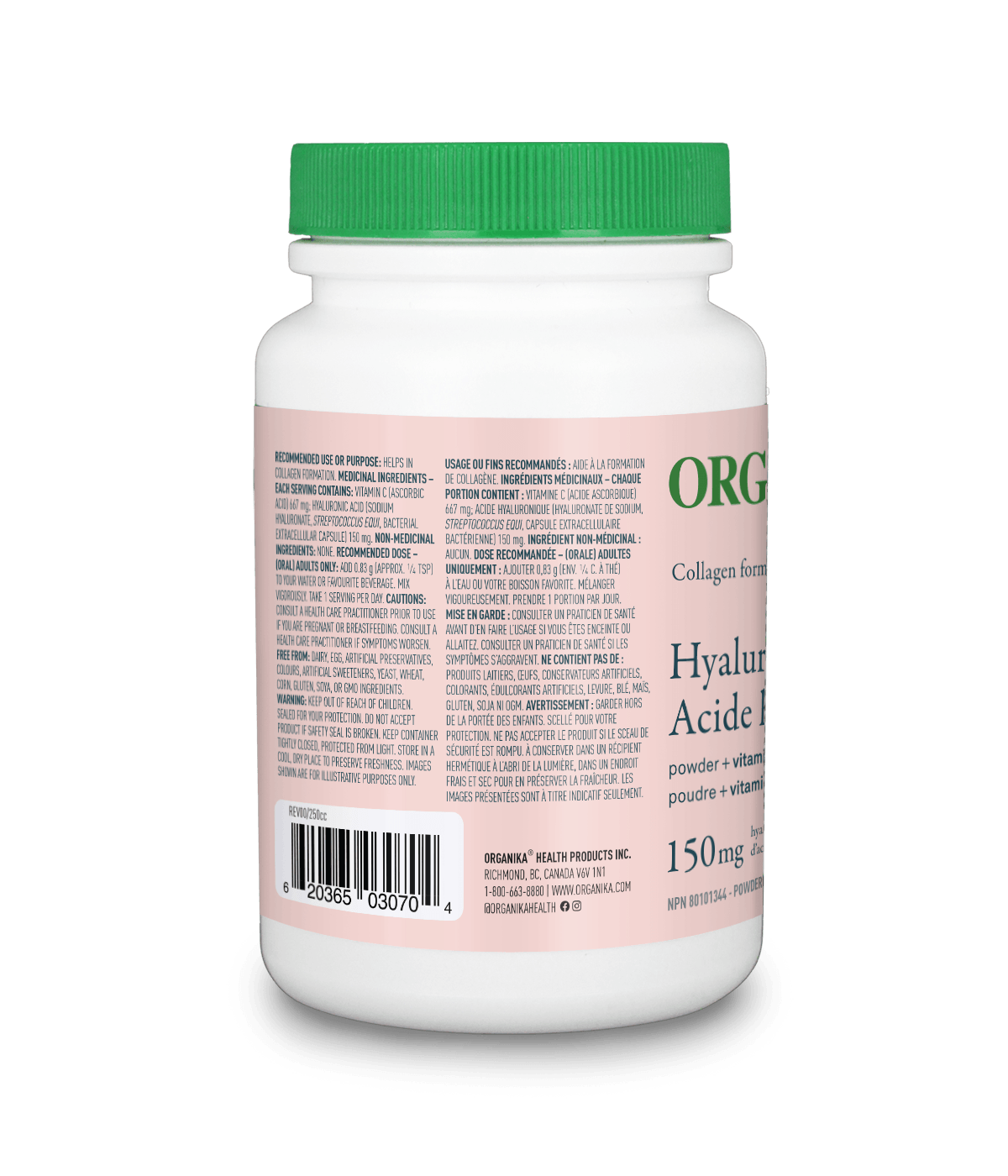


Supplement Facts


Ingredients & Nutrition
MEDICINAL INGREDIENTS - Each serving contains: Vitamin C (Ascorbic acid) 667 mg, Hyaluronic Acid (Sodium Hyaluronate, Streptococcus Equi, Bacterial Extracellular Capsule) 150 mg.
How to Use: Add 0.83 g (approx. 1/4 teaspoon) to your beverage and mix vigorously. Take 1 serving per day.
Is This Right for You?
Do you want to improve your skin's hydration and reduce fine lines?
Are you looking for natural support to maintain healthy joints and reduce stiffness?
Are you interested in a vegan-friendly supplement that combines hydration and joint support?
If you answered "yes" to any of the above, this product is right for you.

-
Combines hyaluronic acid with vitamin C for enhanced skin and tissue support
-
Powder form to mix as you like
Ingredients & Nutrition
Recommend For
Do you want to improve your skin's hydration and reduce fine lines?
Are you looking for natural support to maintain healthy joints and reduce stiffness?
Are you interested in a vegan-friendly supplement that combines hydration and joint support?
If you answered "yes" to any of the above, this product is right for you.
Gluten-Free
No Preservatives
Non-GMO
Vegan Friendly
No Artificial Colours or Flavours
Combined hyaluronic acid with vitamin C to deeply hydrate skin, promote collagen production and support healthy joints


The Full Scoop

-
Combines hyaluronic acid with vitamin C for enhanced skin and tissue support
-
Powder form to mix as you like
Hyaluronic acid is like your body's natural moisture magnet, found mostly in your skin, joints and connective tissues. Itís key to keeping everything hydrated and feeling good. But as we get older, our supply naturally drops, and that's when you start noticing dry skin and slower repair. Packed with hyaluronic acid that can hold up to 1,000 times its weight in water, our Hyaluronic Acid Powder helps replenish hydration deep within the skin, smoothing out texture and wrinkles. Plus, with vitamin C added to boost collagen production, this dynamic duo supports healthy bones, joints and that radiant, youthful glow. Vegan-friendly and thoughtfully formulated, it's a simple, effective way to give your body welcome hydration.
Ask Away
We’ve got the FAQs covered. But if you’re still stuck, we’re only a message away.
Get in TouchWhat is the difference between sodium hyaluronate and hyaluronic acid?
Sodium hyaluronate is a water-soluble salt form of hyaluronic acid and is more stable. This form also makes it more resistant to oxidation. Sodium hyaluronate has a lower molecular weight than hyaluronic acid, allowing it to be more readily absorbed.
I'm already using hyaluronic acid topically, why should I consider taking it orally?
Application of topical hyaluronic acid only addresses the skin issues at the surface level and the effect will be diminished gradually, whereas with a supplement the effect will be maintained by taking them continuously. Additionally, supplements can be taken throughout the day to support the inner body such as your joints, bones, and tissues.
What is the source of Organika's hyaluronic acid?
Our hyaluronic acid is fermented from bacterial origin, making this a vegan-friendly product that is safer, purer, and more sustainable.
Can I add this to my hot drinks?
Yes, our hyaluronic acid is stable in temperatures up to 100 °C. However, to fully reap the benefits of the added vitamin C, we recommend adding this to room temperature or cold beverages.
Is it normal that the hyaluronic acid powder gel up when I add to liquid?
Yes, the hyaluronic acid powder when added to liquid will gel up. HA can bind to 1,000 times its weight in water. This is why it's so helpful for joints and skin.
You'll Likely Also Love...
BioCell Collagen Capsules
Reduce joint stiffness and increase skin elasticity in one easy capsule
Enhanced Collagen Protein Original
Canada’s #1 Collagen Powder for healthier skin, hair, nails, joints, and gut
Hyaluronic Acid Capsules
Increases hydration in connective tissues throughout the body
Liga-Joint Premium
Move with ease and maintain healthy joints
Support Beyond Products
Even though collagen seems like a household name these days, many people are still unsure if they should take collagen, or what it can do for them. There are many questions you still have about collagen before it's time to pick up your first bottle, so we want to clear that up! To help you decide if collagen is for you, we’re answering the top 10 things you need to know about collagen: 1. What is collagen? Collagen is a protein, and is what makes up a lot of what is found in our hair, skin and nails. It is referred to as the “glue” that holds our body together. As we get older, however, we're unable to produce the necessary collagen to prevent the signs of aging. This is why many people will supplement with it. 2. Are there negative side effects of taking collagen? For most people, there are no side effects of taking collagen. Most people find that adding collagen to their routine has positive outcomes for their digestive health, hair, skin and nails. However, in rare instances, some people have noticed small breakouts, or light digestive distress when adding collagen to their diet. There has been no definitive correlation between collagen and these issues. 3. How long does it take to see results from taking collagen? There are a few factors that matter here: how long you take it, and what your lifestyle is already like. Generally it can take up to four months to truly see the benefits of collagen in your body. If you are eating a poor diet that lacks the nutrients your body needs to produce its own collagen, and start taking a maximum dose each day, then you may see the effects quite quickly. However if you eat quite healthy and add in about 1 serving per day (approximately 10g), it may take a few more weeks to see the extra glow. 4. Do I need to take collagen every day? It is suggested that you consume around 1 tbsp. of collagen everyday. If you are looking for more therapeutic benefits taking 2-3 tbsps. each day will provide more nourishing, and possibly faster acting effects. As our collagen production starts to reduce with age, taking it regularly will be beneficial for more long-term health effects. 5. Should I take collagen on an empty stomach? Our best suggestion to taking collagen: take it whenever, and however it works best for you! Many people will add it to their morning cup of coffee, while others like it in a pre-bed elixir to help promote a more restful sleep. While some people swear by taking it at a specific time each day, there is no evidence to show that timing matters. So take it whenever works for you! 6. Are there different types of collagen? Yes! You can learn more about the types of collagen here. But we’ll give you the Cole's Notes version now: There are many types of collagen in your body (articles cite anywhere from 15-27 different types of collagen). However, there are three types that are of most importance in our body: Type 1, Type 2, and Type 3. Pretty easy to remember, right? Type 1 collagen is what helps our hair, skin and nails, and can be found in Organika’s Enhanced Collagen, Marine Collagen and Salmon Collagen. Type 2 collagen is found in Organika’s Chicken Bone Broth and BioCell Collagen supplements, and supports joint health. People living with joint issues, like osteoarthritis may find relief from using supplements rich in Type 2 collagen. Type 3 collagen is usually found alongside Type 1 collagen in your body and is an important component of our bone marrow. This is available in Organika's Enhanced Collagen line. 7. Can I make collagen on my own? Your body naturally produces collagen using Vitamin C, and the amino acids, glycine, proline and lysine. This means that yes, if you are eating a primarily plant-based diet, you can still produce the collagen necessary to keep your skin glowing and your hair flowing. However, it is important to remember that our collagen production decreases as we age. That’s likely because our body can’t breakdown and absorb the proper nutrients to create it (like these amino acids and Vitamin C). So including a collagen supplement, or a plant-based booster is helpful! 8. Is collagen just a powder? Collagen can come in various forms, but you’ll usually see it in a powder or capsule form. For example, our Marine Collagen and Enhanced Collagen line are powders that can be added to smoothies, baking, or your morning coffee/tea. Our Plant-Based Collagen Booster is also a powder, however it’s best to use that in cold liquids to ensure you keep the integrity of the vitamins. On the other hand, you can also use Organika’s BioCell Collagen or Salmon Collagen, which both come in capsule form. 9. Can I take different types of collagen at the same time? You can! In fact, Organika even sells a product that includes all three types of collagen in one convenient powder called Full Spectrum Collagen. 10. Can I add hydrolyzed collagen to hot foods or liquids? The process of hydrolyzation means that the collagen has been broken down into a smaller molecule that is better absorbed by your body. Heating the collagen does not degrade the nutrient profile, as it is already broken down to its smallest molecule.
read moreFrequently asked questions: 1) Which Collagen type is better to take? All types of collagen can be beneficial because of their unique amino acid profiles and the roles that they play in our body. The best type of collagen to take is the one that you feel will give you the most health benefits. If you want healthy skin, hair, and nails, look for Type 1 collagen. Type 2 collagen is great for our connective tissues, so using chicken-based collagen (Bone Broth or Biocell) is an excellent idea. Choosing a collagen type is really up to you, and what you personally need to use it for. 2) How much Collagen should you take, and when can you start to see results? Ideally, you should take it at least two tablespoons daily (see the next question for more details), for at least one month until you start to see results. After a few weeks of consistent use, you should notice that your nails are stronger, your skin appears tighter and does not seem as dry. 3) How much collagen do I need every day? The average person needs around 1 gram of protein per kilogram of body weight. So if your weight is 60kg, you will need 60g of protein per day. The amount of collagen you may take is 30% of that or roughly 18 grams per day. Based on this rough calculation, you can reap the most benefits from your collagen supplement with consistent consumption of 2 servings of collagen per day. Generally, you will start to see a difference in the tone of your skin, how quickly your hair and nails begin to grow, as well as decreased joint aches and pains. 4) Can I take too much collagen? Collagen is a protein, so overconsumption means you will be getting extra calories from it. Bear in mind that collagen is not a complete protein, so it is not intended to replace a healthy diet, nor should it be your only source of protein. Reminder: Collagen doesn't generally cause side effects. However, if you do suffer from digestive disturbances or a sensitive digestive tract, starting with a small dose, and working your way up, is always a good start. 5) When is the best time to take collagen? The amazing thing about collagen is that you can take it anytime, hot or cold, and even add it to your baking! However, there is some research out there suggesting that, for optimal results, collagen is best taken on an empty stomach for better absorption or one hour before bed. Collagen is highly bioavailable, so our bodies are already able to absorb it quite rapidly. For optimal results, you can also try something like "collagen loading", where you can take collagen three times per day for one month. Deciding when to take collagen is really up to you and what works best for your schedule! 6) Do you need to take Vitamin C with Collagen for absorption? No, you don't need to take your collagen with Vitamin C for absorption. However, Vitamin C plays a huge role in our collagen production. Supplementing with Vitamin C daily will boost your natural collagen production and is also beneficial while supplementing. Vitamin C is also a great antioxidant and has been shown to help with beautiful skin. 7) Is collagen safe for children and pregnant women? Collagen is essentially a protein. Organika's Enhanced Collagen is safe to consume for children, as well as for women who are pregnant or breastfeeding. However, before starting any new supplement regime (especially while pregnant or breastfeeding), we recommend speaking with your healthcare provider. 8) Which is better? Bone broth or collagen? Both collagen and bone broth have amazing benefits! Bone broth contains a high amount of collagen in it, as well as essential minerals and GAGs (glycosaminoglycans): think Chondroitin Sulfate, Hyaluronic Acid and Glucosamine. Supplementing with both provides you with a variety of different types of collagen, as well as the added nutrients found in bone broth. 9) Where does Organika Source its Collagen from? Organika takes great pride in ensuring that all of its products come from the cleanest, purest, and most sustainable sources possible. Both the chicken and bovine collagens are USDA approved, and sourced from grass-fed and pasture-raised animals, without the use of growth hormones or antibiotics. All of Organika's collagen products are hydrolyzed and tested for all heavy metals, toxins, and are GMO-free. 10) Why is Marine Collagen more expensive than bovine? You will find that marine collagen always has a higher price point. There is a reason behind this, as it always comes down to how the collagen is sourced and the supply that is available. Organika's Marine Collagen is sourced from the scales and skin of freshwater cod. This quality of sourcing provides more health benefits. Best of all, it's flavourless and odourless! Do you still have questions about Collagen? Download our e-book to learn more about the different types of collagen and which one is for you!
read moreWith so much information out there and different types of Collagen on the market, what is the ideal way and time to take it? How much do you need to take and how long until you notice the health benefits? First, Collagen is so very versatile! That is one of its fantastic traits. You can take collagen any time of the day for its benefits. Organika’s Enhanced Collagen is flavourless and odourless, so it is so effortless to add into your daily routine! Here are a few of our favourite ways to take & use Collagen. Best times of day to take collagen First thing in the AM in your morning coffee! Collagen contains protein, so this is an excellent way for you to start your morning and keep you feeling full. One hour before exercise! Collagen contains over 17 different amino acids, which are essential for muscle repair, recovery, and growth! Also, protein is an excellent source of long-lasting energy. Collagen is the fastest absorbing form of protein we can uptake in the body and won't leave you feeling sluggish during those workouts. Night Time Tea: I love to have a tablespoon Of Organika’s Enhanced Collagen Relax in a cup of tea in the evenings. Due to its high glycine content, collagen can help you feel relaxed and rested. It also promotes a healthy and restful sleep. How many times can I take collagen in a day? Personally, I like to take up to 6 tablespoons a day. This works out to 3 servings of protein a day (17 grams- per 2 ). I find that this helps keep my protein uptake adequate. It also ensures I am getting the maximum benefits for my health needs. Ideally, you don’t want to take much more than that (especially in one serving ) as your body won't absorb it and will utilize it for energy. You can’t "overdo" collagen; however, it won't be beneficial to your body if you exceed more then 2-3 tablespoons a serving as your body can't absorb that much in one serving. Ideally, for the various benefits, I take and recommend up to 6 tablespoons a day. When is the best time to take collagen for you?
read more





